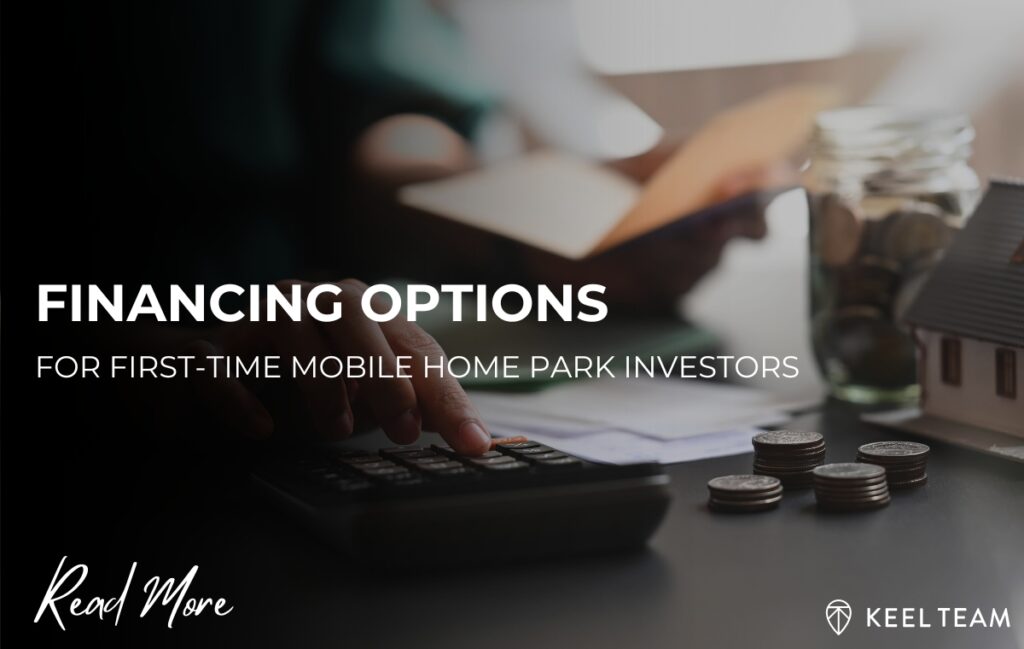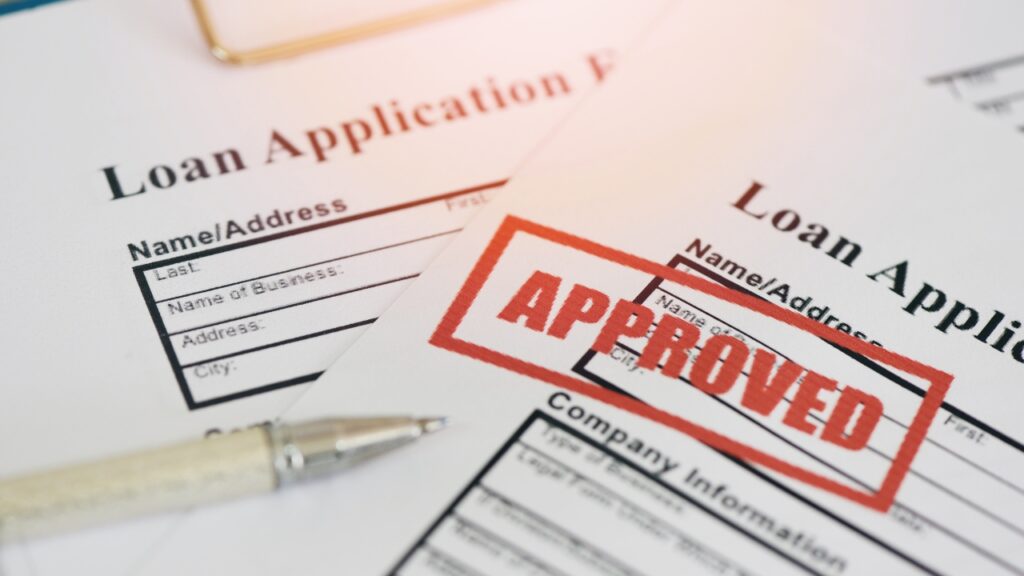Financing Options for First-Time Mobile Home Park Investors
-
 Tristan Hunter - Investor Relations
Tristan Hunter - Investor Relations

Investing in mobile home parks can be a potentially lucrative venture. However, securing financing can be challenging, especially for first-time investors. This guide outlines various financing options, including traditional loans, private equity, crowdfunding, and government programs, to help you navigate this complex landscape.
Traditional Loans
Traditional loans are a common way to finance mobile home parks. These loans are typically provided by banks, credit unions, or other financial institutions. Here’s a breakdown of what to expect:
1. Commercial Real Estate Loans:
- Pros: These loans offer relatively low interest rates and long repayment terms. They are suitable for established investors with a good credit history.
- Cons: The approval process can be stringent, requiring extensive documentation, a strong credit score, and a solid business plan.
2. Small Business Loans:
- Pros: The Small Business Administration (SBA) offers loans specifically designed for small businesses, including mobile home parks. SBA 7(a) and 504 loans are popular options.
- Cons: The application process can be lengthy and competitive. These loans also require a substantial down payment and collateral.
3. Portfolio Loans:
- Pros: Some banks offer portfolio loans, which they keep on their own balance sheets. These loans can be more flexible in terms of requirements and terms.
- Cons: Interest rates might be higher than other traditional loans.
Private Equity
Private equity is another viable option for financing mobile home parks. It involves raising capital from private investors who are looking for a return on their investment.
1. Real Estate Investment Groups:
- Pros: These groups pool resources from multiple investors to purchase properties. They provide expertise and shared risk, making it easier for new investors.
- Cons: Investors may have less control over the property and decision-making processes. Returns are also shared among all members.
2. Private Equity Firms:
- Pros: These firms invest large sums of money in real estate projects, including mobile home parks. They bring extensive industry knowledge and can offer substantial funding.
- Cons: These firms expect high returns on their investments and may impose strict management requirements. This can reduce the autonomy of the primary investor.
Looking for more insights? Download your FREE copy of the “Top 20 Things I’ve Learned from Investing in Mobile Home Parks“
By Andrew Keel
Crowdfunding
Crowdfunding has become a popular method for raising capital in recent years. It involves collecting small amounts of money from a large number of people, usually via online platforms.
1. Real Estate Crowdfunding Platforms:
- Pros: Platforms like Fundrise, RealtyMogul, and CrowdStreet allow investors to raise capital from a broad audience. This method can attract investors who are interested in the unique benefits of mobile home parks.
- Cons: Crowdfunding requires a compelling pitch to attract investors. There are also platform fees, and the regulatory environment can be complex.
2. Peer-to-Peer Lending:
- Pros: Peer-to-peer (P2P) lending platforms connect borrowers directly with individual lenders. These platforms can offer more flexible terms compared to traditional banks.
- Cons: Interest rates can be higher, and the amounts available for borrowing might be smaller than through other financing methods.
Government Programs
Several government programs can assist first-time mobile home park investors. These programs often offer favorable terms to encourage investment in affordable housing.
1. FHA Loans:
- Pros: The Federal Housing Administration (FHA) offers loans for mobile home parks, particularly for those that focus on affordable housing. These loans typically have lower down payment requirements and favorable interest rates.
- Cons: The application process can be complex, and there are strict guidelines regarding property condition and borrower qualifications.
2. USDA Rural Development Loans:
- Pros: The U.S. Department of Agriculture (USDA) provides loans for rural development, including mobile home parks. These loans can be advantageous for properties located in rural areas, offering low interest rates and long repayment terms.
- Cons: Eligibility is limited to rural areas, and the application process can be time-consuming, .
3. State and Local Programs:
- Pros: Many states and local governments offer grants, loans, and tax incentives to promote affordable housing. These programs can provide critical funding and support for new investors.
- Cons: Availability and terms vary widely by location, and competition for these funds can be high.

Tips for Securing Financing
- Build a Strong Business Plan:
- Lenders and investors want to see a clear plan for profitability. Include detailed financial projections, market analysis, and a solid strategy for property management.
- Improve Your Credit Score:
- A higher credit score can help secure better terms on loans. Pay down existing debt, correct any errors on your credit report, and maintain good financial habits.
- Network with Industry Professionals:
- Building relationships with other investors, real estate agents, and financial advisors can provide valuable insights and opportunities. Networking can also lead to potential partnerships and investment opportunities.
- Consider Hiring a Consultant:
- A real estate consultant with experience in mobile home parks can provide expert advice, help navigate financing options, and improve your chances of securing funding.
Conclusion
Financing a mobile home park investment requires careful planning and a thorough understanding of available options. Traditional loans, private equity, crowdfunding, and government programs all offer potentially unique benefits and challenges. By exploring these options and preparing thoroughly, first-time investors can find the right financing solution to start their journey in mobile home park investing.
Contact us below, learn more and get expert insights into mobile home park investing. With a prtoven track record of managing over 46 mobile home parks, we’ve got you covered!
Learn more about mobile home park investing.
Interested in learning more about mobile home park investing? Get in touch with us today to find out more.
Disclaimer:
The information provided is for informational purposes only and is not investment advice or a guarantee of any kind. We do not guarantee profitability. Make investment decisions based on your own research and consult registered financial and legal professionals. We are not registered financial or legal professionals and do not provide personalized investment recommendations.

Tristan Hunter - Investor Relations
View The Previous or Next Post
Subscribe Below 👇





